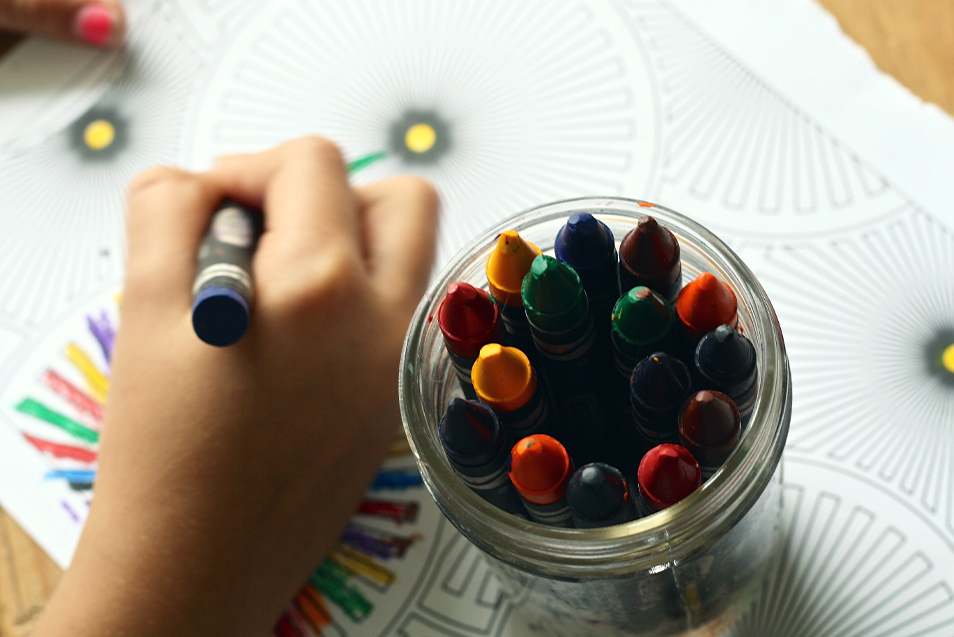Behavioral health is about much more than making good choices or not acting out. It’s a complex issue that impacts how a child interacts with the world around them, and how they view themselves. That’s why making sure kids have access to behavioral health support programs is so important for their well-being.
What is Behavioral Health?
The terms ‘behavioral health’ and ‘mental health’ are interrelated, and those connections can sometimes be confusing.
- Behavioral health, according to the CDC, “describes the connection between a person’s behaviors and the health and well-being of the body and mind.” It encompasses multiple factors such as habits, eating patterns, substance use and abuse, physical and social behaviors.
- Mental health is about emotional, psychological, and social well-being. Mental health affects how we think, the way we feel, and how we act – our behaviors. It helps determine how we handle stress, relate to others, and make healthy choices.
Mental health affects behavioral health. When a student, for example, has anxiety, ADHD, or depression, it’s common for those issues to trigger destructive or disruptive behaviors. Stress, fear, trauma and distress can negatively affect the body and mind, causing changes in behavior such as withdrawing from social activities and friendships, changes in eating and sleeping patterns, acting out, or self-harming behaviors.
Some behaviors may lead to anxiety, depression, feelings of self-loathing, mood swings, or a reduced ability to concentrate. So, behavioral health affects mental health, and mental health affects behavioral health.
Social factors in a child’s life can impact both mental and behavioral health. For example, kids are at a much higher risk of developing mental health issues or behavior disorders when they’re exposed to violence, experience maltreatment, or if their parents have depression or substance abuse problems.
All of which is why it’s important that there’s a holistic approach to addressing children’s and adolescents’ mental health, and social-emotional well-being.
Behavioral Health and Academic Success of Students
According to the US Department of Education, many students struggle with mental health challenges that make it difficult for them to fully participate in learning, and may interfere with making friends and having positive social interactions. When those challenges are misunderstood, they can lead to behaviors that are disruptive and further remove them from learning opportunities.
- It’s estimated that in a school of 600 students, about 100 of them are dealing with a mental illness.
- Studies show that emotional and behavioral problems in kids as young as 3 are associated with performing below grade level at age 12.
- Academic, social, and emotional outcomes of young people are improved in schools with positive school climates and that have adequate mental and behavioral health supports.
According to the Substance Abuse and Mental Health Services Administration (SAMHSA), “universal screening for behavioral and mental health issues can help with early identification of students who are at-risk or in need of intervention.” Early screenings combined with a multi-tiered approach to support can get at-risk students the help they need sooner, and may prevent the need for more intensive therapeutic services.
School-based mental health services have proven to help students achieve academically, and gives them access to experiences that let them build healthy social skills, self-awareness, and caring connections to adults in their schools and communities. Schools that collaborate with community partners for such services increase academic success, reduce truancy and discipline rates, and create a positive school environment in which students can learn and be successful.
Holistic Behavioral Health Support for Jackson County Kids
Because the CSF is focused on improving the mental health and social-emotional well-being of Jackson County kids, we’re proud to fund organizations that are addressing the mental and behavioral health needs of local children and adolescents. We’ve been able to fund programs that:
- Put school counselors and school social workers in eligible schools such as Center School District, Genesis School, Raytown School District and De La Salle Education Center.
- Create a partnership between the Grandview School District and Cornerstones of Care for student screening and helping families through functional family therapy.
- Improve mental health and well-being supports in schools such as Gordon Parks Elementary, and Citizens of the World Charter School in Kansas City, creating trauma-informed academic environments that build resilience and promote healing and growing together.
CSF’s focus on funding 10 key service areas make it possible for Jackson County kids to get the holistic help they need to improve both behavioral health and mental health so they can thrive the way they deserve to.

